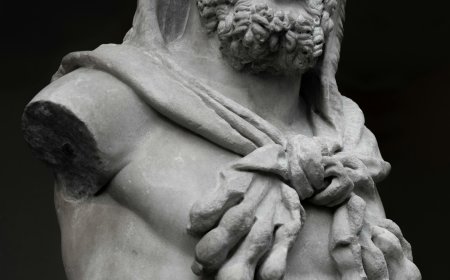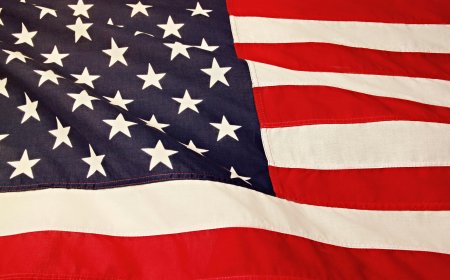Leaders Who Fought for Civil Rights
Explore the stories of remarkable leaders who fought for civil rights, reshaping history and inspiring the fight for justice worldwide.

Civil rights are not granted; they are fought for, demanded, and won through courage, sacrifice, and vision. Across centuries and continents, leaders have risen to challenge oppression, resist injustice, and imagine societies where freedom and equality are not privileges, but rights for all.
The history of civil rights is not simply a collection of speeches or protests. It is a tapestry of human determination, shaped by leaders who believed that dignity belongs to everyone, regardless of race, gender, class, or faith.
Martin Luther King Jr.: The Dreamer of Justice
When Americans think of civil rights, one name rises above all: Martin Luther King Jr..
In the 1950s and 1960s, King emerged as the face of the U.S. Civil Rights Movement, guiding it with his philosophy of nonviolent resistance. Inspired by Mahatma Gandhi, King believed that peace could defeat hate. His “I Have a Dream” speech at the 1963 March on Washington painted a vision of equality that still echoes around the world.

King’s leadership led to transformative victories: the Civil Rights Act of 1964 and the Voting Rights Act of 1965. His legacy proves that moral courage can reshape laws, hearts, and nations.
Rosa Parks: The Woman Who Refused to Give Up Her Seat
Sometimes civil rights leadership begins with an act of defiance so simple it seems ordinary. On December 1, 1955, Rosa Parks refused to surrender her bus seat to a white passenger in Montgomery, Alabama.
Her quiet resistance sparked the Montgomery Bus Boycott, led by Martin Luther King Jr., and ignited a movement that spread across the South. Parks became a symbol of dignity and strength, proving that everyday people could challenge systemic injustice.
Nelson Mandela: From Prisoner to President
In South Africa, Nelson Mandela embodied resilience in the face of brutal oppression. For 27 years, he was imprisoned for resisting apartheid — a system of racial segregation that denied basic rights to Black South Africans.
Mandela’s release in 1990 symbolized hope. Four years later, he became South Africa’s first Black president, guiding the nation toward reconciliation rather than revenge. Mandela showed that forgiveness can be more revolutionary than vengeance, and that leadership means building bridges even after decades of division.

Mahatma Gandhi: The Power of Nonviolence
Before King, there was Mahatma Gandhi, whose philosophy of satyagraha — nonviolent resistance — became a model for civil rights struggles across the globe.
Gandhi led millions of Indians in their fight against British colonial rule, not with weapons, but with boycotts, marches, and peaceful defiance. His 1930 Salt March against British salt taxes became a symbol of mass resistance.
Though Gandhi’s life ended tragically in 1948, his vision shaped leaders from King to Mandela, proving that peaceful protest can dismantle even the mightiest empire.
Malcolm X: The Voice of Defiance
While Martin Luther King Jr. preached nonviolence, Malcolm X represented a more militant voice in the American civil rights struggle. As a minister of the Nation of Islam, he spoke unapologetically about Black pride, self-defense, and liberation.
Malcolm X rejected the idea of waiting patiently for justice. His famous words, “by any means necessary,” became a rallying cry for those who felt unheard. Though he softened his stance later in life, advocating unity after his pilgrimage to Mecca, Malcolm X remains a symbol of resistance against systemic oppression.
Emmeline Pankhurst: The Fight for Women’s Suffrage
Civil rights are not limited to race. In early 20th-century Britain, Emmeline Pankhurst and the suffragettes fought fiercely for women’s right to vote. Their hunger strikes, protests, and tireless campaigning forced the government to confront the inequality embedded in democracy.
Pankhurst’s activism inspired suffrage movements worldwide, paving the way for gender equality in politics, education, and work. Today, every woman who casts a ballot participates in her legacy.
Stories of Ordinary People, Extraordinary Courage
Behind every famous leader are countless individuals whose names history often forgets:
- Fannie Lou Hamer, who fought for voting rights in Mississippi despite violence and intimidation.
- Cesar Chavez, who organized farmworkers in the U.S. for fair wages and humane conditions.
- Desmond Tutu, who used faith and moral authority to challenge apartheid alongside Mandela.
Civil rights movements succeed not only because of iconic leaders but also because ordinary people refuse to accept injustice any longer.
A Global Struggle
Civil rights are not confined to one country or one generation. Today, activists around the world continue to fight against racial discrimination, gender inequality, police brutality, and restrictions on freedom of speech.
From the streets of Hong Kong to the protests for Indigenous rights in Australia, the spirit of civil rights leaders lives on. Their message is clear: injustice anywhere threatens justice everywhere.
The Legacy of Civil Rights Leaders
What unites all these leaders is not just their victories, but their courage to imagine societies different from the ones they inherited. Civil rights leadership means risking reputation, safety, and even life itself to fight for others.
Their sacrifices remind us that progress is never permanent. It must be defended, expanded, and reimagined with every generation.
As Martin Luther King Jr. once said: “The arc of the moral universe is long, but it bends toward justice.” The leaders who fought for civil rights bent that arc with their vision, courage, and relentless determination.
FAQs
Q1: Who was the most influential leader of the U.S. Civil Rights Movement?
A1: Martin Luther King Jr. is often considered the central figure for his leadership in nonviolent resistance and landmark legislative victories.
Q2: Why is Rosa Parks remembered as a civil rights leader?
A2: Her refusal to give up her bus seat sparked the Montgomery Bus Boycott, a key moment in the American Civil Rights Movement.
Q3: How did Nelson Mandela change South Africa?
A3: Mandela helped end apartheid and became South Africa’s first Black president, promoting reconciliation.
Q4: What role did Gandhi play in civil rights?
A4: Gandhi pioneered nonviolent protest, influencing movements worldwide.
Q5: Who were some women leaders in the civil rights struggle?
A5: Emmeline Pankhurst (suffrage), Rosa Parks, and Fannie Lou Hamer are among the most influential.
আপনার প্রতিক্রিয়া কী?
 পছন্দ
0
পছন্দ
0
 অপছন্দ
0
অপছন্দ
0
 ভালোবাসা
0
ভালোবাসা
0
 মজার
0
মজার
0
 রাগান্বিত
0
রাগান্বিত
0
 দুঃখজনক
0
দুঃখজনক
0
 বাহ
0
বাহ
0



























































